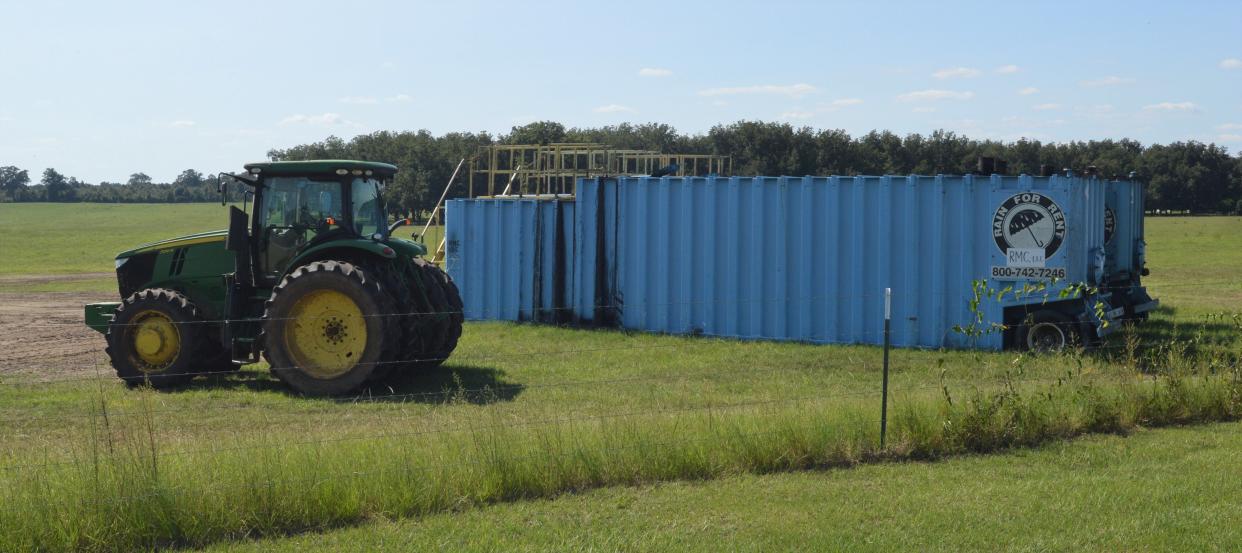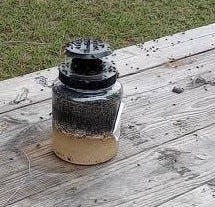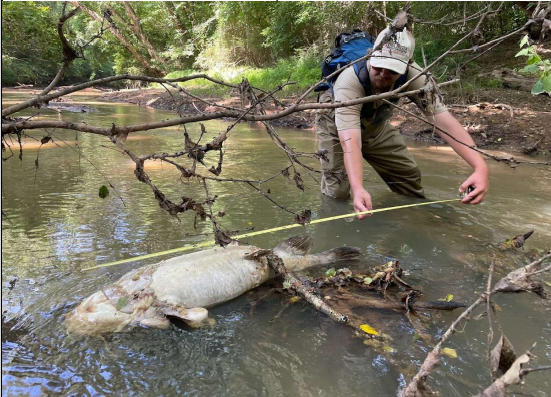Sludge: Second round of public comments open for controversial soil amendment regulations

Many Georgia farmers welcome soil amendments as a nitrogen-rich free alternative to expensive fertilizer.
But neighboring landowners say the putrid smell and flies attracted to the substance that can be derived from waste at pet food processing plants are just too much. They worry about potential negative impacts on their businesses, the environment and their families’ health.
Both groups have the opportunity to tell the Georgia Department of Agriculture what they think in the agency's public comments on proposed rule changes through Dec. 1.
Updating the regulations

Fish kill: In wake of 1,700 fish deaths in Little River, EPD fines Wilkes County farm $85,000
A plague of flies: Citizens seek help with smell and flies from neighbors’ fertilizer applications
After a first-shot at updating the rules and regulations for soil amendments in July, the Georgia Department of Agriculture has taken into consideration critiques of the summer's rule changes and proposed a new set of rules. The changes would clarify the Georgia Soil Amendment Act first passed in 1976.
On Oct. 31, around 12 weeks after closing public comments on its proposed rule changes, the state agency responsible for regulating soil amendments released its new set of plans. Public comments on the changes to these rules will close on Dec. 1.
The Department of Agriculture has said the proposed changes will “limit redundancy with regulations of the Georgia Environmental Protection Division, tailor existing, generally applicable requirements, implement additional registration, use, and recordkeeping requirements for industrial by-product derived soil amendments, and implement requirements for site specific nutrient management plans at sites applying industrial byproduct-derived soil amendments.”
New regulations?: After fish kill, Georgia organizers renew efforts to increase soil additive regulation
More specifically, the proposed changes will require the registrants to provide additional information, including material source and an analysis of components; new guidelines on application, distribution, storage and recordkeeping; supplemental restrictions and prohibitions; and limits on certain elements in both soil amendment composition and application.
The new rules will also require companies to keep site-specific nutrient management plans for sites where these soil amendments are stored or applied. These plans will include maps of application sites, standards and testing required for soil, a consideration of the composition of the amendment in nutrient management planning and a more clearly defined application method and potential for additional monitoring requirements.
Proposed changes also include requiring registrants to prove their specific use claims or use researched literature to show the usefulness and value of the proposed products and clarify the tonnage report calculation methods.
No going far enough

Savannah Riverkeeper Tonya Bonitatibus said she thinks there are some key missing components.
"There is a huge red flag for me," Bonitatibus said. While the new rules are increasing requirements that companies keep record of where the farms dispersing soil amendments are located, as well as nutrient management plans, the Department of Agriculture doesn't have those records unless it specifically requests them from companies. In this scenario, she said a lot of information will not be accessible under open records law, making them inaccessible and harder to track down.
Moreover, the Georgia Department of Agriculture still wouldn't have a map of where soil amendment is being applied to land.
The Department of Agriculture will accept written comments from the public until 4:30 p.m. Dec. 1. They can be sent to Jennifer Wren, Georgia Department of Agriculture, 19 M.L.K. Jr. Drive SW, Atlanta, GA, 30334 or emailed to jennifer.wren@agr.georgia.gov.
This article originally appeared on Augusta Chronicle: Georgia Department of Agriculture public comments on soil amendments

